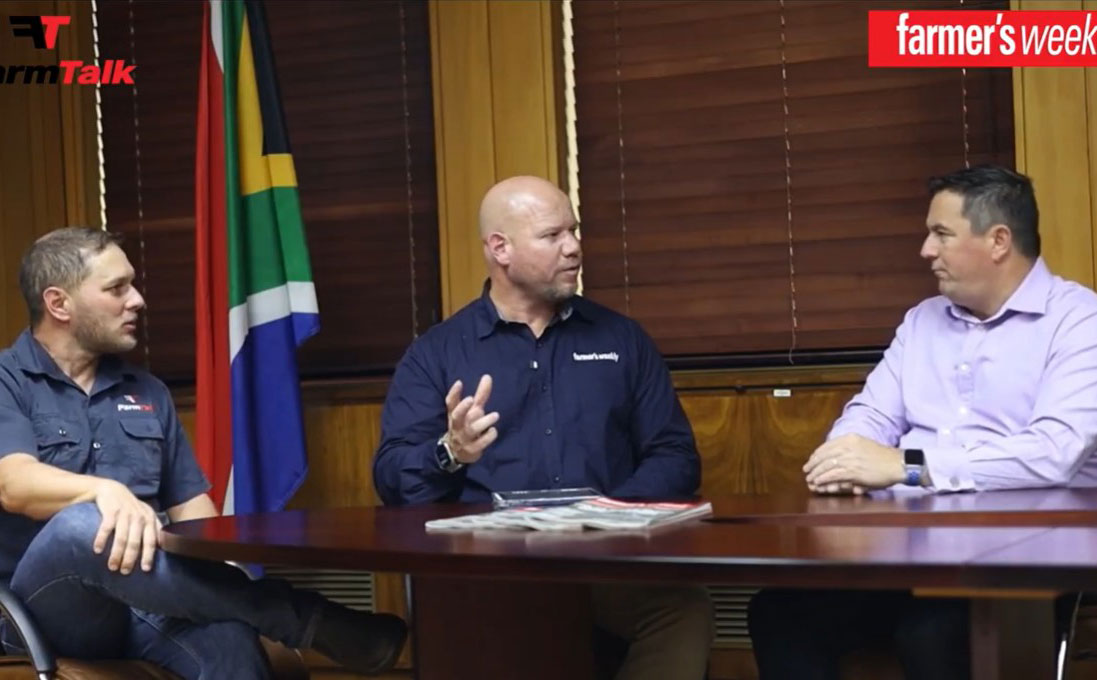
Libraries bulge with books espousing techniques and theories of management.
Eric Partaker, a British author and business coach, renders it all down to one simple message: “Think and manage your business like a farmer.”
READ Best strategy and management practices
The more I thought about it, the more I realised the brilliance of his insight, and as a farmer and student of management, the more mortified I became at not having tumbled to the same conclusion myself!
It’s a brilliant analogy, and if you are a farmer or serve the agriculture sector, you’ll appreciate the brilliance of it.
The right conditions
No farmer would ever attempt to produce a crop on a farm that doesn’t have the right requirements in terms of climate, soil type, irrigation and so on.
For example, planting bananas in an area prone to frost, sugar cane in a water-starved location, peaches on a farm with insufficient chilling, or trying to farm goats in a moist, high-rainfall region that is perfect for developing foot rot.
Equally, no farmer would dream of planting poor-quality seed or trees or purchasing breeding livestock that did not meet minimum standards.
The right staff
Precisely the same principles apply to appointing staff for any business. It’s crucial that individuals with the right qualifications and experience, and who will fit into the organisation, its location and culture, are identified.
Anything less would be like planting the wrong seed!
No farmer would ever cut corners or skimp on time in investigating crop options, variety, seed type, nursery trees or livestock.
The same level of perfection is applicable in the crucial task of recruitment and selection of staff for any business.
Crops need irrigation, fertilisation and protection against disease, exactly like employees need nurturing, training and development.
And just like precision farming, a personal plan aligning the natural skills of the individual to the job and developing their expertise is required.
Just as you would walk your fields, sensitive to signs of stress and ‘listening’ to the plants or livestock, listen to the needs of your team and understand their challenges.
People are different to plants and livestock in one significant way: they need regular feedback, recognition and praise. Provide it liberally, and when things go well, celebrate every milestone.
You don’t blame the crops for not growing fast enough or producing high yields, and should do likewise with your staff.
If results are not up to expectations, provide sympathetic support and acknowledge effort.
You might experience frustration, but just as you would not uproot a crop before it has had had a fair chance of demonstrating what it can do, the same should apply to your staff members.
READ Help your employees reach their full potential
Having said that, as necessary as it is to remove weeds that suck the life out of crops, it’s equally necessary to remove the ‘weeds’ that demotivate employees.
These often arise from relationships, and terms and conditions surrounding the job, rather than the job itself.
But they could also be due to things under your control, like remuneration, leave conditions, housing and the like, which are seen as unfair or inadequate.
A healthy work environment and team of motivated people can never be developed unless these are cleaned up and cease to serve as demotivators.
‘weeding’ may be needed
It may also be necessary to remove ‘weeds’ in the form of employees themselves who sow negativity and discord in your team.
Despite the time and effort devoted to selection and development of staff, there will always be some people who cannot fit in or are unwilling or unable to conform to the requirements of the company and job.
It is best for all employees that they be removed, exactly in the same way that a productive plant benefits from the removal of a nearby weed.
Leadership, like farming, is all about nurturing the right conditions for employees to grow, just like plants and livestock.
As complex as leadership and management sometimes seems to be, it’s really about a handful of simple practices.
The simplest rule of all perhaps is encompassed in the words:
“Do unto others as you would do unto your plants and animals.”
Do this and you won’t go wrong!
Peter Hughes is a business and management consultant.
Get trusted farming news from Farmers Weekly in Google Top Stories.
➕ Add Farmers Weekly to Google ✔ Takes 10 seconds · ✔ Remove anytime






